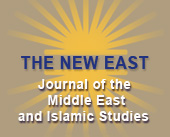The Middlemen of Cultural Change:
Newspaper Agents in the Nahda
Ami Ayalon
The late-nineteenth century Arab literary awakening, the nahda, portended a far-reaching cultural change in Arabic speaking societies. It featured two major and well-known developments: the growth of a printing industry, including books, newspapers, periodicals and numerous other products, which provided the public with unprecedented quantities of new knowledge; and the emergence of massive reading audiences, who adopted printed products as part of their daily routine. But along with the producers and consumers of new knowledge, a third, often-forgotten group of people was involved in the process: a host of middlemen, who served as an essential bridge between authors and customers. Among them were printers and binders, distribution agents and delivery men, bookshop owners and newspaper sellers, librarians, and many others. In the wider story of the nahda, each of these links in the chain may seem marginal. But exploring them is essential if we seek to understand the Arab cultural awakening with its socio-cultural implications.
This study focuses on one sector of the middlemen that linked authors and readers in the early days of Middle Eastern printing: agents (wukala’) of Arabic newspapers and periodicals. Newspaper owners laid out networks of representatives throughout the region, including in remote locations, whose tasks were promoting distribution, ensuring its smooth flow, and collecting fees from subscribers and other customers. The newspapers published the names of their agents and often carried directives to them on technical and operative matters. Such announcements allow us to reconstruct, albeit partially, the routine of these functionaries and to consider their role in the cultural awakening. The findings indicate that, besides their often vital help in distribution, there were many instances of unreliable or inefficient agents who obstructed rather than helped. In this way, as in many others, this group seems to have epitomized the diffusion of the nahda with its advantages and disadvantages.

